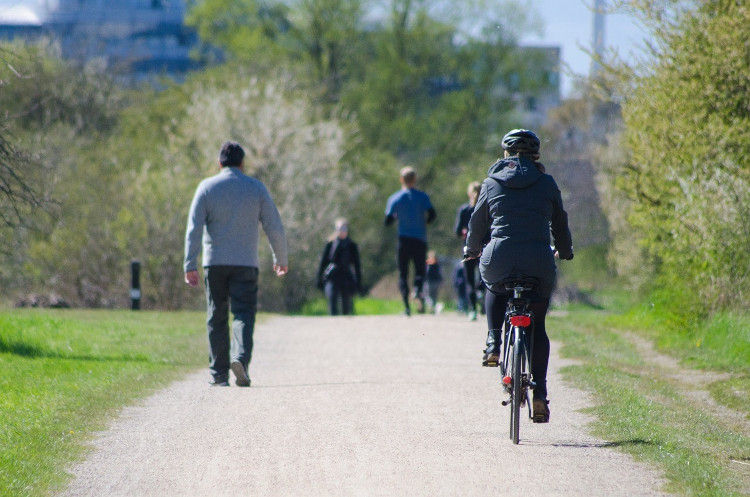Boost walking and cycling in towns and cities, urges government adviser.
Posted on in Business News , Cycles News
A government adviser on cities has urged ministers to make urban areas friendlier for walking and cycling, saying this would boost prosperity, health and personal freedom, and could even help solve the housing crisis.

In a report that takes a notably different stance to the Prime Minister’s recent “plan for drivers”, which seeks to prioritise car use at the expense of active travel and bus use, Nicholas Boys Smith, who chairs the government’s Office for Place, said cars “diminish liberty as well as enhancing it”.
Speaking to The Guardian, he said:
“Don’t hate cars. Don’t wage a war against motorists. But don’t wage a war for them either,” Boys wrote in the report by Create Streets, the urban design organisation he founded. “Instead fight the battle for place and for happy and healthy, prosperous and productive neighbourhoods. All the evidence suggests that voters will thank you.”
The new study, titled Move Free, comes after a series of moves by the government to curb councils’ ability to boost walking and cycling through initiatives such as low-traffic neighbourhoods, 20mph speed limits and bus lanes.
While arguing that it was vital for politicians to seek public consent before proceeding with moves to shift urban travel away from cars, the report notes that evidence from around the world showed the enormous benefits this would bring.
“Look at the facts and the data already in your local town,” it said. “In many historic English market towns the most prosperous streets with the fewest, if any, empty shops are the ones with the most street trees and with the tightest, most speed-constraining, carriageway. Cars can be present, but they are guests. Humans are the dominant species, not cars.”
The study points to research from dozens of cities around the world showing that towns and cities not dominated by fast-moving motor vehicles tend to do better economically, as people find them more appealing. Removing parking did not seem to affect retail sales, it added.
More walking and cycling had been shown to make people notably healthier and happier, the report noted, while years of research had shown the car-dominated streets greatly limited the freedom of children.
“Cars particularly destroy the liberty of the child and the teenager to move around safely,” it said. “Children are much less free now than they were 50 or 100 years ago, a fact which changes the nature and vitality of our towns.”
Given the far greater space efficiency of other forms of transport, especially given the need for cars to be parked – where, the report said, they spend 96% of their time – a shift towards denser cities could greatly help the housing crisis by allowing more homes to be built, and where people want to live.
While much of this is viewed as standard urban planning practice in many European cities, England has recently moved away from seeking to boost active travel amid a prioritisation of drivers seemingly built more on ideology than research.
In comments released with the report, produced with the help of the charity Cycling UK, Boys Smith said: “Cars are great. Cars are awful. Cars can boost liberty. Cars can destroy it. Cars can help the economy. Cars can undermine it. It is largely a question of where.”


